-
 Bitcoin
Bitcoin $113900
-1.39% -
 Ethereum
Ethereum $3517
-4.15% -
 XRP
XRP $3.009
1.59% -
 Tether USDt
Tether USDt $0.9997
-0.04% -
 BNB
BNB $766.8
-1.41% -
 Solana
Solana $164.6
-2.38% -
 USDC
USDC $0.9998
-0.02% -
 TRON
TRON $0.3277
0.65% -
 Dogecoin
Dogecoin $0.2023
-1.67% -
 Cardano
Cardano $0.7246
0.05% -
 Hyperliquid
Hyperliquid $38.27
-4.77% -
 Sui
Sui $3.528
-0.52% -
 Stellar
Stellar $0.3890
-0.73% -
 Chainlink
Chainlink $16.16
-2.69% -
 Bitcoin Cash
Bitcoin Cash $539.9
-4.38% -
 Hedera
Hedera $0.2425
-2.00% -
 Avalanche
Avalanche $21.71
-0.97% -
 Toncoin
Toncoin $3.662
5.73% -
 Ethena USDe
Ethena USDe $1.000
-0.02% -
 UNUS SED LEO
UNUS SED LEO $8.964
0.35% -
 Litecoin
Litecoin $107.7
2.33% -
 Shiba Inu
Shiba Inu $0.00001223
-0.40% -
 Polkadot
Polkadot $3.617
-0.97% -
 Uniswap
Uniswap $9.052
-2.49% -
 Monero
Monero $295.1
-3.79% -
 Dai
Dai $0.9999
0.00% -
 Bitget Token
Bitget Token $4.315
-1.85% -
 Pepe
Pepe $0.00001060
0.11% -
 Cronos
Cronos $0.1342
-2.72% -
 Aave
Aave $256.0
-0.87%
Can a Bitcoin wallet address be frozen?
While Bitcoin wallet addresses can't be directly frozen like bank accounts, indirect methods like exchange restrictions or legal action targeting private keys can severely limit their usability.
Feb 27, 2025 at 09:12 pm
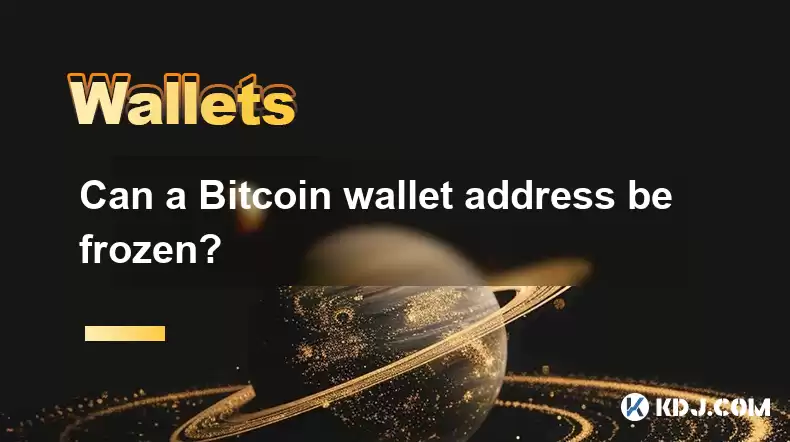
Can a Bitcoin Wallet Address Be Frozen?
Key Points:
- Bitcoin's decentralized nature makes it inherently resistant to government or individual freezing of wallet addresses in the same way traditional bank accounts can be.
- However, various indirect methods can effectively limit the usability of a Bitcoin address, impacting its functionality though not directly "freezing" it in the strictest sense.
- Understanding the nuances of Bitcoin's architecture and the legal frameworks surrounding cryptocurrency is crucial to grasping the limitations and possibilities surrounding address control.
- Different jurisdictions have varying approaches to regulating cryptocurrency, leading to diverse outcomes regarding the potential for address restriction.
Can a Bitcoin Wallet Address Be Frozen? A Deep Dive
The question of whether a Bitcoin wallet address can be frozen is multifaceted and requires a nuanced understanding of Bitcoin's decentralized architecture and the legal landscape surrounding cryptocurrencies. The simple answer is: no, not in the same way a bank account can be directly frozen by a court order. However, the reality is more complex. While no one entity can directly "freeze" a Bitcoin address in the way a bank can freeze a bank account, various indirect methods can severely restrict its usability, rendering it effectively unusable for all practical purposes.
- Understanding Bitcoin's Decentralized Nature: Bitcoin operates on a decentralized peer-to-peer network. There is no central authority, like a bank or government, controlling transactions. Each transaction is verified and added to the blockchain by a distributed network of nodes. This inherent decentralization is the primary reason why a single entity cannot simply "freeze" an address. There is no central server or database holding all Bitcoin wallet addresses that can be accessed and shut down. The blockchain itself is a public ledger, but controlling access to it would require compromising a significant portion of the network, an extremely difficult task given its distributed and resilient nature. This makes direct freezing impossible. Instead, efforts to control Bitcoin addresses rely on influencing the network indirectly or leveraging legal and regulatory mechanisms.
Indirect Methods of Limiting Address Usability: While a direct freeze is impossible, various indirect methods can significantly hamper the functionality of a Bitcoin address. These methods often involve leveraging third-party services or relying on legal pressure.
- Exchange Account Restrictions: If a Bitcoin address is linked to an exchange account, the exchange itself can freeze the associated account, preventing the user from accessing or transferring the Bitcoin. This isn't a freeze of the address itself, but a freeze of access through that specific exchange. The Bitcoin remains on the blockchain, but the user loses control via that particular pathway. Exchanges often comply with legal requests from governments or law enforcement agencies to freeze accounts suspected of involvement in illegal activities. This highlights the crucial distinction between freezing the address itself versus freezing access to it via a specific intermediary. The Bitcoin remains technically accessible, but practical access is denied through the most common access point. The complexity lies in understanding that the Bitcoin remains on the blockchain, untouched, yet effectively inaccessible to the user via the chosen access route.
- Law Enforcement Actions: Law enforcement agencies may attempt to seize Bitcoin by obtaining court orders targeting specific individuals or entities. This doesn't directly freeze the address but targets the individuals controlling the private keys associated with the address. Seizing the private keys effectively grants law enforcement control over the Bitcoin. However, this approach hinges on identifying and locating the individuals responsible for the address, and successfully seizing their assets. The difficulty in this process stems from the anonymity often associated with Bitcoin transactions. Tracking down individuals involved in Bitcoin transactions can be extremely challenging, requiring extensive investigation and cooperation with various parties.
- Private Key Compromise: While not a "freeze" in the traditional sense, the loss or compromise of the private key associated with a Bitcoin address renders it unusable. This is a far more serious issue than a simple freeze, as it leads to the irreversible loss of funds. It's crucial to emphasize that securing private keys is paramount. The loss of a private key isn't a freeze imposed by an external party; it's a self-imposed loss of control.
- Regulatory Pressure on Businesses: Governments can exert pressure on businesses handling Bitcoin transactions (exchanges, payment processors) to comply with regulations and freeze accounts suspected of illicit activity. This doesn't directly freeze the address but restricts its usability through these intermediaries. This approach leverages regulatory power over businesses, rather than direct control over the blockchain itself. The complexities in this approach arise from the varying legal frameworks across different jurisdictions.
- Jurisdictional Differences: The legal landscape surrounding cryptocurrency varies significantly across different jurisdictions. Some countries have stricter regulations and actively work to trace and seize Bitcoin related to illegal activities, while others have more lax approaches or are still developing their regulatory frameworks. This difference in regulatory environment impacts the effectiveness of indirect methods for limiting Bitcoin address usability. The level of cooperation between law enforcement agencies and cryptocurrency businesses also plays a significant role in how effectively these indirect methods can be implemented.
- The Illusion of Control: It's crucial to understand that even with indirect methods, there is no true "freezing" of the Bitcoin address in the absolute sense. The Bitcoin itself remains on the blockchain, immutable. The actions taken affect access and control, but not the existence or inherent value of the Bitcoin.
FAQs
Q: Can the Bitcoin network itself freeze an address?
A: No. The decentralized nature of the Bitcoin network prevents any single entity, including the network itself, from freezing an address.
Q: If I lose my private key, is it like a freeze?
A: Losing your private key is not a freeze; it's a permanent loss of access to your Bitcoin. It's not an external action but a self-imposed loss of control.
Q: Can a government freeze a Bitcoin address?
A: A government cannot directly freeze a Bitcoin address. However, it can use indirect methods like pressuring exchanges or seizing private keys. The effectiveness depends heavily on the specific jurisdiction's laws and cooperation from exchanges.
Q: What about freezing addresses linked to illicit activities?
A: Law enforcement agencies can pursue legal avenues to seize Bitcoin associated with criminal activities, but this usually targets the individuals controlling the private keys, not the address itself. The challenge lies in tracing the funds and identifying the culprits.
Q: Is there any technology that can freeze a Bitcoin address?
A: No technology currently exists that can directly freeze a Bitcoin address without compromising the fundamental principles of the Bitcoin network's decentralization. All methods rely on indirect approaches, targeting access points or individuals rather than the address itself.
Q: Does the type of wallet affect the possibility of freezing?
A: The type of wallet (hardware, software, etc.) does not affect the inherent inability to directly freeze a Bitcoin address. However, the security of the wallet and the storage of private keys are crucial in preventing unauthorized access, which can lead to the effective loss of control, similar to a freeze.
Q: What are the implications of a jurisdictional difference in this matter?
A: Jurisdictional differences significantly impact the ability of authorities to restrict Bitcoin addresses. Countries with strong regulations and cooperation with exchanges can exert more control, while others with less stringent regulations have limited ability to enforce restrictions.
Q: Can a Bitcoin address be permanently deleted from the blockchain?
A: No. Transactions recorded on the Bitcoin blockchain are permanent and cannot be deleted. The address remains on the blockchain, even if the funds are inaccessible.
Q: What measures can I take to protect my Bitcoin from unauthorized access?
A: Securely store your private keys, use reputable exchanges, and stay informed about security best practices in the cryptocurrency space. Diversifying your holdings across multiple wallets and exchanges can mitigate the risk of total loss due to compromise of a single point of access. Regularly back up your private keys and use strong passwords. Consider using hardware wallets for enhanced security.
This detailed analysis aims to provide a comprehensive understanding of the complexities surrounding the concept of freezing a Bitcoin wallet address, clarifying the possibilities and limitations within the cryptocurrency ecosystem. The absence of a direct freezing mechanism highlights the unique characteristics of Bitcoin's decentralized architecture.
Disclaimer:info@kdj.com
The information provided is not trading advice. kdj.com does not assume any responsibility for any investments made based on the information provided in this article. Cryptocurrencies are highly volatile and it is highly recommended that you invest with caution after thorough research!
If you believe that the content used on this website infringes your copyright, please contact us immediately (info@kdj.com) and we will delete it promptly.
- Bitcoin Strategy: Saylor's Not Hoarding, He's Building an Empire
- 2025-08-02 22:30:12
- Bitcoin Bloodbath: Macro Pressures and Liquidations Unleash Crypto Chaos
- 2025-08-02 22:30:12
- Worldcoin, Identity, WLD Price: Decoding the NYC Crypto Buzz
- 2025-08-02 21:10:12
- Shiba Inu: Utility and Community Strength Drive Crypto's Evolution
- 2025-08-02 21:50:12
- Crypto Donations, Trump PAC, and Bitcoin: A New York Minute on Political Coin
- 2025-08-02 20:30:12
- Crypto Market Under Pressure: Bearish Momentum and Rising Volatility Take Hold
- 2025-08-02 20:30:12
Related knowledge

What is a watch-only wallet in Trust Wallet?
Aug 02,2025 at 03:36am
Understanding the Concept of a Watch-Only WalletA watch-only wallet in Trust Wallet allows users to monitor a cryptocurrency address without having ac...

How to switch between networks in Trust Wallet?
Aug 02,2025 at 12:36pm
Understanding Network Switching in Trust WalletSwitching between networks in Trust Wallet allows users to manage assets across different blockchains s...
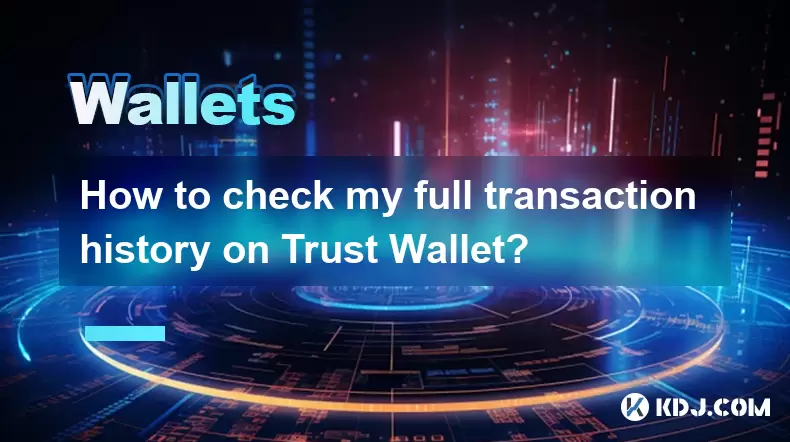
How to check my full transaction history on Trust Wallet?
Aug 02,2025 at 09:24am
Understanding Transaction History in Trust WalletTrust Wallet is a widely used non-custodial cryptocurrency wallet that supports a broad range of bloc...
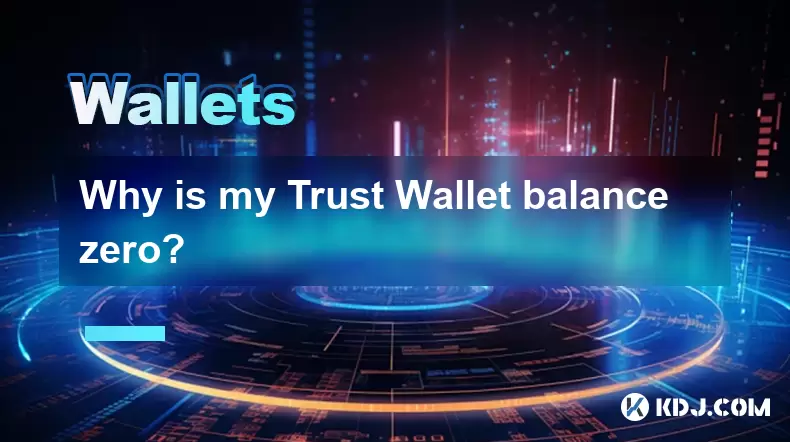
Why is my Trust Wallet balance zero?
Aug 02,2025 at 03:49am
Understanding Trust Wallet Balance Display IssuesIf you're seeing a zero balance in your Trust Wallet despite knowing you've previously received or se...
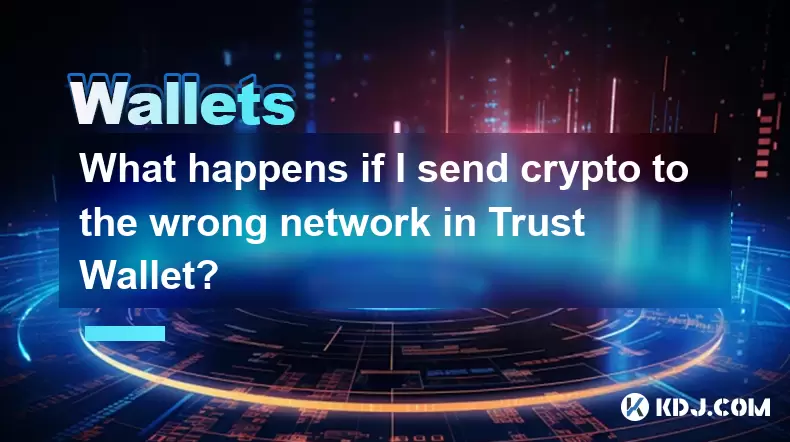
What happens if I send crypto to the wrong network in Trust Wallet?
Aug 02,2025 at 07:22pm
Understanding Network Compatibility in Trust WalletWhen using Trust Wallet, it's essential to understand that different cryptocurrencies operate on di...
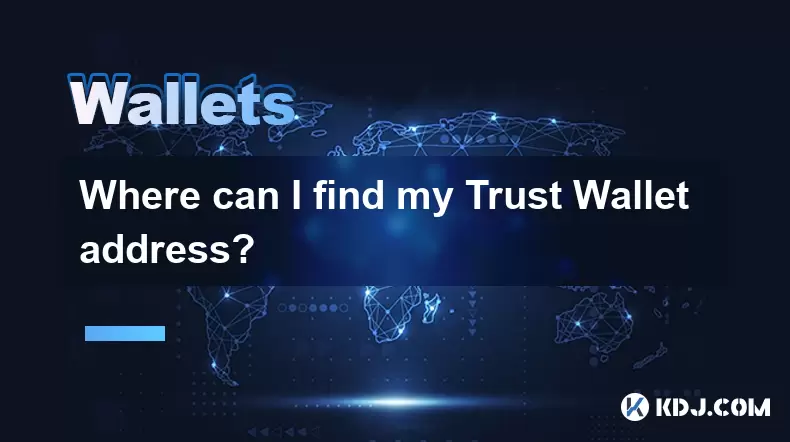
Where can I find my Trust Wallet address?
Aug 02,2025 at 06:07pm
Understanding Your Trust Wallet AddressYour Trust Wallet address is a unique identifier that allows others to send you cryptocurrency. It is a string ...

What is a watch-only wallet in Trust Wallet?
Aug 02,2025 at 03:36am
Understanding the Concept of a Watch-Only WalletA watch-only wallet in Trust Wallet allows users to monitor a cryptocurrency address without having ac...

How to switch between networks in Trust Wallet?
Aug 02,2025 at 12:36pm
Understanding Network Switching in Trust WalletSwitching between networks in Trust Wallet allows users to manage assets across different blockchains s...

How to check my full transaction history on Trust Wallet?
Aug 02,2025 at 09:24am
Understanding Transaction History in Trust WalletTrust Wallet is a widely used non-custodial cryptocurrency wallet that supports a broad range of bloc...

Why is my Trust Wallet balance zero?
Aug 02,2025 at 03:49am
Understanding Trust Wallet Balance Display IssuesIf you're seeing a zero balance in your Trust Wallet despite knowing you've previously received or se...

What happens if I send crypto to the wrong network in Trust Wallet?
Aug 02,2025 at 07:22pm
Understanding Network Compatibility in Trust WalletWhen using Trust Wallet, it's essential to understand that different cryptocurrencies operate on di...

Where can I find my Trust Wallet address?
Aug 02,2025 at 06:07pm
Understanding Your Trust Wallet AddressYour Trust Wallet address is a unique identifier that allows others to send you cryptocurrency. It is a string ...
See all articles

























































































